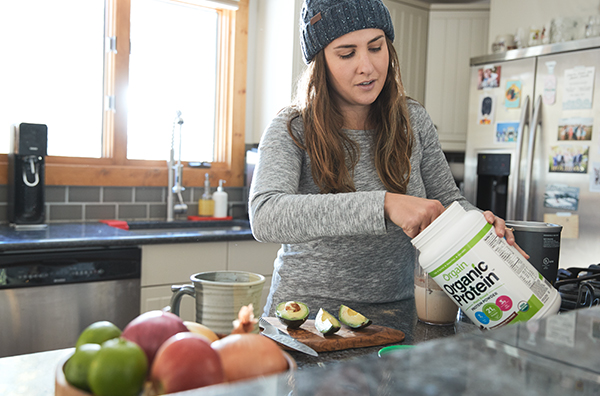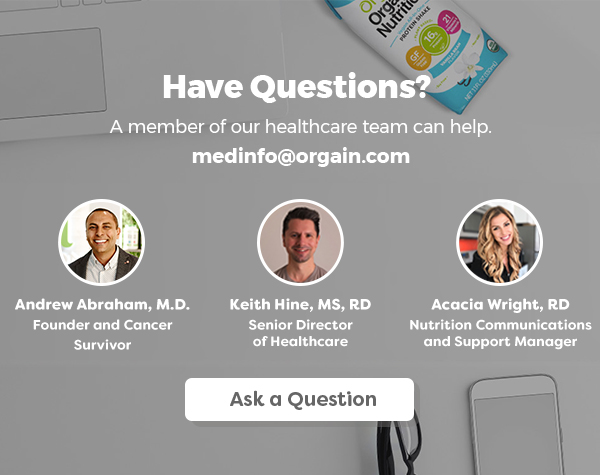
Ways to Support the Well-Being of Clinicians During a Global Health Crisis

This and related studies2 highlight the importance of protecting healthcare workers as a vital component of public health measures during the COVID-19 crisis. In an effort to provide a measure of assistance, we want to share some self-care strategies to support the well-being of clinicians during this uncertain time.
If you’ve been feeling stressed, overwhelmed, anxious or all the above, know that you’re not alone. Whether you are working in the hospital or at home, here are simple strategies that you can implement to better manage worry, stress and anxiety.
Practice mindfulness:
It’s almost as if our minds were wired to get distracted and carried away in thought. That’s why mindfulness is so beneficial, because it helps us return to the present moment. It’s the practice of maintaining awareness of our thoughts, feelings and surrounding environment without labeling or judgment. Practicing mindfulness can help direct our attention away from negative thinking.
Learn relaxation techniques:
Similar to mindfulness, relaxation is a process that decreases the effects of stress on our mind and body. Practicing relaxation techniques can assist in relieving muscle tension, reducing anxiety, and improving overall wellbeing. Some of these techniques include:
Deep breathing – When stressed, the muscles that help us breathe tighten, leading to shortness of breath. Abdominal breathing is one of the easiest and most effective ways to reduce muscle tension and anxiety. By focusing on taking several deep breaths you can quickly relieve symptoms associated with feeling stressed.
Guided Imagery – The mind is a powerful tool that can have a tremendous effect on the body. Guided imagery is a technique that focuses on using the imagination in a proactive, positive way while utilizing all of our senses. By using guided imagery techniques, we can change how we feel simply by changing what we choose to focus on.
Meditation – Research suggests that daily meditation can alter the brain’s neural pathways, making us more resilient to stress. Dedicating just a few minutes to this practice can result in improved focus, happiness, memory and self-control. No incense or floor cushions needed.
Engage in daily exercise:
Regular exercise has a unique ability to energize and stimulate while simultaneously creating a sense of calm and relaxation. It reduces the body’s stress hormones, such as adrenaline and cortisol, and triggers the production of “feel-good” endorphins, helping us to cope with potentially challenging situations.
Eat well:
Your brain works hard 24/7, which means it requires a constant supply of fuel. Eating a nutritious, well-balanced diet helps provide your cells with vitamins, minerals, and antioxidants that nourish the brain and body, while also protecting you from the damaging effects of oxidative stress. As healthcare professionals, you already know the benefits of exercise and eating well, but during these challenging times, it can help to have a reminder.
The next time you are feeling anxious or stressed, try one (or more!) of the above techniques. You may be surprised by their effect!
Know when to ask for help:
Even with healthy eating, exercise, and relaxation techniques, additional help may be needed to support the mental health for yourself or someone you know. The organizations listed below are valuable sources of information and support, and you can reach out to them anonymously. Please don’t ever hesitate to ask for help!
- Mental Health America – Provides resources and information to help others with mental health concerns, including a self-care screening tool and other ways to find help, if needed. In honor of Mental Health Month, they provide a Tools 2 Thrive toolkit.
- National Alliance on Mental Illness – Offers online support groups, education and other resources.
- Substance Abuse and Mental Health Services Administration’s National Helpline – 1-800-662-HELP (4357)

1 Lai, J et al. JAMA Netw Open. 2020; 3(3):e203976.,
doi:10.1001/jamanetworkopen.2020.3976
2 Rana, W et al. Asian J Psychiatr. 2020;Apr 7. doi: 10.1016/j.ajp.2020.102080

Enhancing Communication
Skills for Telehealth

As telehealth care becomes the most common way to provide counseling, it’s important for clinicians to understand the most effective communication strategies to deliver a positive patient or client experience. In the world of telehealth, developing good telepresence or “screenside” manner is just as essential as developing good bedside manners. Creating a warm and inviting feeling during telehealth visits can possibly be the most challenging obstacle, but it is possible to achieve. Since telehealth visits tend to be shorter than in-person visits, establishing rapport is crucial to success and to the commitment to ongoing visits. The goal is to look into the camera and communicate to the patient or client as though the camera is not there…
Consider implementing these simple yet effective verbal and non-verbal communication tactics to enhance your future telehealth visits:
Verbal Skills
- Use clear language and clarify unclear statements, if needed
- Keep language simple and avoid using abbreviations
- Avoid interrupting the patient/client, but make sure to check in occasionally and to make sure you understand what they are saying
- Use a soft, friendly tone of voice
- Be mindful of your vocal volume, and don’t talk too fast
Non-Verbal Skills
- Maintain proper eye contact by improving the distance between client/patient and camera, also known as the gaze angle. People tend to look down on the computer screen during video calls, which could result in poor eye contact. For clinicians, it’s important to look straight into the camera, versus the patient’s eyes, as this is what will establish connection with the client/patient.
- Pay close attention to the facial expressions of the client/patient during visits, and ask for more information if you suspect their expressions indicate that they are feeling a certain way or that they are unsure about something you said
- Be mindful of body language; maintain an open posture with arms uncrossed
- Limit distracting movements and note taking
- Smile and convey empathy by showing openness and acceptance
Keep in mind that the telehealth experience of communicating virtually may be just as new for the client or patient as it is for you, and they will need reassurance and comfort during this adjustment. Continue to review these and other best practices for communication and you will create a comfortable virtual setting for you and your clients.

Orgain Clean-It-Up Recipe Contest

Participate in Orgain’s first-ever recipe contest for health professionals! Five winners will receive a $250 Orgain prize package and have their recipe analyzed using ESHA’s Food Processor® Nutrition Analysis Software, plus be featured on Orgain’s healthcare website and social media sites!
To enter, submit an original recipe and photo featuring at least one Orgain product and commonly available ingredients or pantry staples, share a description of the recipe and explain who you would recommend it to!
Click Here for Official Rules and to Enter! The contest entry period will end on Tuesday, June 30, 2020 at 11:59pm PT. Good luck and happy creating!

Upcoming Live Webinars
With increased demand for virtual learning opportunities, Orgain is offering more webinars in 2020 than ever before. See below for more information on how to register for upcoming live webinars or click here to watch previous webinars to earn CPEUs free of charge!

Susan Weiner, MS, RDN, CDE, CDN (Presenter)
Approved for 1.0 CPEU for RDNs and DTRs May 14, 2020 at 2pm EDT
REGISTER HERE

Nanci S. Guest PhD, RD, CSCS (Presenter)
Approved for 1.0 CPEU for RDNs and DTRs June 18, 2020 at 2pm EDT
REGISTER HERE

Laura Andromalos, MS, RD, CSOWM, CDE & Katie Chapmon, MS, RD (Presenters)
Approved for 1.5 CPEU for RDNs and DTRs July 16, 2020 at 2pm EDT
REGISTER HERE

Jean LaMantia, RD (Presenter)
Approved for 1.0 CPEU for RDNs and DTRs September 24, 2020 at 2pm EDT
REGISTER HERE

Practitioner Testimonial
“I’ve been working many hours while trying to maintain my own health and practice self care, Not Easy! But can’t help anyone else if I am not healthy myself. Thanks Orgain!”
– Cynthia M.
Fort Collins, CO
#ShakesForHeroes Recipient




